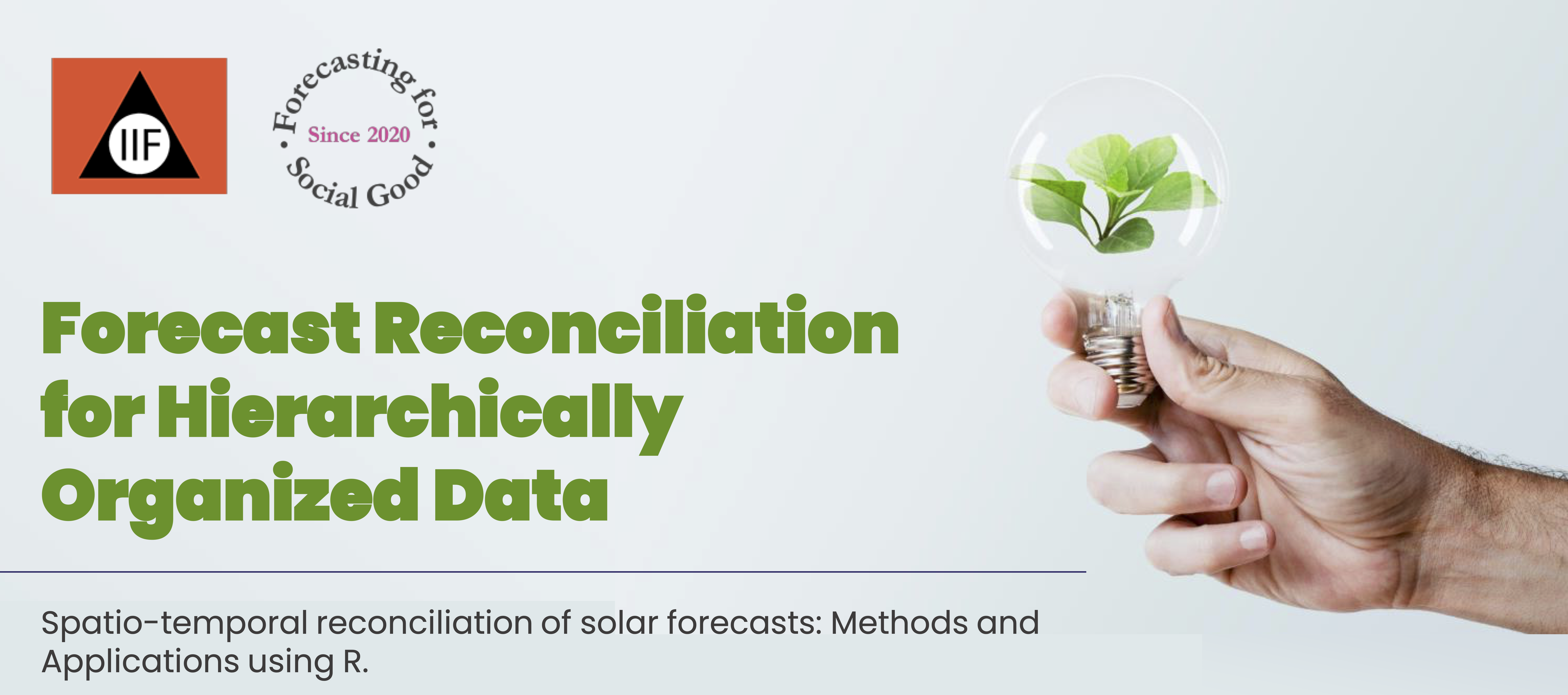- Anyone interested in forecasting, especially in industries with high demand volatility, such as healthcare, energy, and consumer goods.
- Professionals wishing to create forecasts for hierarchically organized data, to address managerial requests associated with single or multiple levels of the firm hierarchies and different time horizons.
- Academics and graduate students who are interested in forecasting methods and techniques with a hands-on session.
- Practitioners in the field who are looking for ways to improve their forecast performances.
- Introducing participants to the concept of cross-temporal forecast reconciliation and its importance in improving forecast accuracy.
- Providing an overview of different methods and techniques for reconciling forecasts.
- Demonstrating how to implement and apply forecast reconciliation techniques in practice using a case study.
- Basic knowledge of R programming language.
- Basic knowledge of statistics and statistical modeling.
- The session will provide an overview of what reconciliation is and how it can be applied in practice. We will 1 briefly look at the methodology of reconciliation in cross-sectional, temporal, and cross-temporal contexts, as well as its recent implementations in programming languages such as R.
- Using solar power data, the session will be followed by a hands-on coding session, where we will show how to reconcile some forecasts in the cross-sectional, temporal, and cross-temporal frameworks.
- Getting familiar with solar power data (spatial and temporal structure) - 5 min
- How to implement cross-sectional, temporal and cross-temporal reconciliation - 20 min
- Discuss practical issues that may arise during the reconciliation process - 10 min
